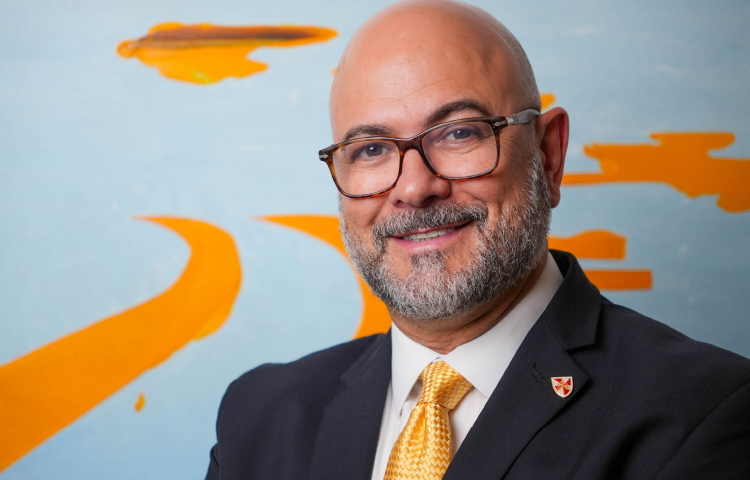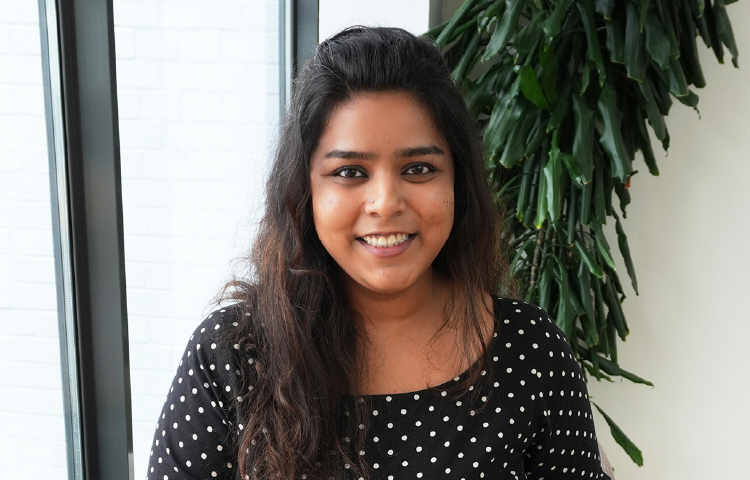“I have always been proud of how seriously we take ethics at Ciarb”
 We caught up with Deputy President Cesar Pereira C.Arb FCIArb to talk about his work with Ciarb so far, the importance of mentorship, and becoming a Chartered Arbitrator.
We caught up with Deputy President Cesar Pereira C.Arb FCIArb to talk about his work with Ciarb so far, the importance of mentorship, and becoming a Chartered Arbitrator.
You were part of the group of Fellows that opened the Brazil Branch in 2019 – how was that experience?
I am very proud of what we accomplished. Around 2014, right after Ciarb held its first Accelerated Route to Fellowship (ARF) in Brazil, we started investigating how to create a Branch in the country. Several of us shadowed at the New York Branch training courses to qualify as Faculty. We contacted Canada Branch which had just been created, and I visited Ciarb executives in London and expressed our interest in opening a Branch. It took a while, a great deal of effort, and invaluable support from past Presidents and Trustees. The then Director General Anthony Abrahams MCIArb visited us in Brazil, and he was able to see first-hand the level of activity, enthusiasm, commitment, and energy we had.
From then on, everything went smoothly. We had a marvellous assembly in May 2019, attended by Anthony and past President Jeffrey Elkinson C.Arb FCIArb, where a group of around 50 people decided to apply to create a Branch. The process moved quickly, and we soon became one of the most vibrant and active Ciarb Branches. I was elected its first Chair, and my successors, Napoleão Casado Filho FCIArb and Cristina Mastrobuono FCIArb have made the Branch even more active and efficient. It is a privilege to look back and know that so many people have been positively impacted by what we started.
You have worked a lot with other Branches on various projects. Can you tell us a little about what you learned, and how you used what you learned?
I am fascinated by how we are a truly global community. Over the years, I have never had any difficulty connecting with Branches anywhere. Whenever we had ideas for joint projects, we found nothing but receptiveness. My term as Chair started a few months before the Covid-19 pandemic set in. Amid all the sadness and disruption, the pandemic brought about the opportunities for online engagement with people around the globe. We took advantage of that, and we created the foundations for in-person interactions later on. The projects we took on were varied and exciting. A highlight was the North America Branch (NAB) Capacity Sharing program. It started in Samoa when Amb. (r.) David Huebner C.Arb FCIArb was NAB Chair. We partnered with NAB to bring it to Brazil’s countryside, in areas not well served with information about arbitration. It allowed us and our NAB colleagues to learn together about these areas and their needs and potential. It was much more than a teaching exercise.
You joined Ciarb’s Peer Review Panel in 2024 – why was this important to you, and what is the role of ethics in ADR?
I have always been proud of how seriously we take ethics at Ciarb. Not only do we have a detailed and comprehensive Code of Conduct that applies to us as neutrals, professionals, and office holders, but the Code is enforced through specific bodies and procedures within Ciarb. The Peer Review Panel is one of them. It serves as the investigative body for the Professional Conduct Committee. The selection process to join the Panel is relatively complex, with meetings and interviews with existing members. It sends a good message to the arbitration community in general, since it reinforces our commitment to upholding the Code of Conduct and our ethical standards.
One of the highlights of your Ciarb career (so far) has been working with Ciarb globally to file an amicus brief before the Brazilian Supreme Court. Can you tell us a little about the process, and what you did – and why?
An entity filed a constitutional action before the Brazilian Supreme Court seeking the interpretation of an Arbitration Act provision regarding disclosure of potential conflicts of interests. At the Brazil Branch, we thought Ciarb was well-positioned to bring to the Court information on how other jurisdictions approached the same topic. We prepared a short survey, which Ciarb shared with all Branches. Many replied, and their answers, together with additional independent research, were compiled and submitted to the Court as a contribution to the debate. Ciarb was admitted as amicus. The case is still pending, but we trust the information Ciarb provided will play a role in forming the Court’s view on the level of disclosure that could be reasonably expected from responsible arbitrators.
While Ciarb has an international outlook, you said in your campaign for President that understanding local practices is key to lasting progress. Can you elaborate on that?
When we look at the different Branches, how they work, and what role they play in their jurisdictions, we see that we cannot ignore local practices. On the contrary, we should embrace them to see how to promote necessary change from within. In some jurisdictions, Ciarb is the only reliable source for appointment of neutrals. Good thing Ciarb is there, then. We should build on that for Ciarb to be a vector of institutional change, so that in time internationally accepted best practices can be internalised. There are places where the knowledge of English is not widespread enough for access to our materials, guidelines and procedures to be practically possible. As much as possible, we should try to adjust. We have much to offer, especially to communities with less access to knowledge and experience. This is challenging, especially at a global scale.
Mentoring is important to you and you’ve been both a mentor and a mentee before. Why is mentoring important in ADR?
I have been a mentor several times, through a variety of organisations. Ciarb Brazil Branch started a mentoring programme in 2021, during the Covid-19 pandemic, and it resulted in a book published with articles written jointly by mentors and mentees. One of best experiences has been with the Moot Alumni Association, through which I have mentored two young professionals from Kenya and two from Uganda.
A mentorship is fundamentally an opportunity, which you can take advantage of or not. Some have been very productive, with committed and engaged mentees from whom I learned a great deal and who benefitted from our discussions and projects together. I heard once at a conference in Kenya how important it was for anyone who had the opportunity to work actively in international arbitration to engage in assisting mentees or other younger professionals who could benefit from the exposure to this experience. I think this is key for intergenerational development. The debate on the role of Tribunal Secretaries or the evolution of AI-assisted arbitration cannot ignore the educational aspect of allowing younger professionals to grow alongside seasoned arbitrators.
You also serve as a Director on the Board of Vis Moot East and volunteer as an arbitrator at the Vis Moot – why is it important to give back and nurture the next generation of arbitrators?
My first participation in the Vis East, already as an arbitrator, was almost fifteen years ago. It changed my career. I met there, actually quite by chance, a person who in a short time became truly my own mentor in several aspects of my academic and professional life, Professor Ingeborg Schwenzer. I am proud to have come back many times afterwards, and I was even prouder when my daughter was a “mootie” in 2018. Many associates from my law firm come from the Vis Moot. The level of commitment and engagement the Vis Moot creates in thousands of students every year is unparalleled. That Ciarb has always backed this initiative is a testament to both the Vis Moot’s quality and Ciarb’s vision. Vis Moot, Vis East, and the multiple other similar competitions, in English or otherwise, must be praised and cherished.
In a world of short attention span and immediate rewards, it is almost unbelievable that so many students dedicate months to writing skilful memoranda and mastering complex pleadings and hard Tribunal questions. It is quite magical, actually. The visionary creators and brilliant directors have made it such a huge success, and they do not deserve anything but our support and engagement.
You’re also a Chartered Arbitrator – why did you go for Chartered status, and how did you find it? Has it impacted your career?
I suppose the main reason to apply was to engage even more with Ciarb, after having been a Fellow for about ten years. I was also curious to see how it worked and to submit some of my awards to specialised examination and feedback. I was positively impressed by how detailed and intense the examination and interview by three experienced Chartered Arbitrators were. I was thrilled to pass. Today I wear my C.Arb FCIArb postnominals with a good touch of pride and great responsibility.
Read about the Presidential Election here
Read our interview with Ciarb President Prof. Dr Mohamed Abdel Wahab C.Arb FCIArb here



